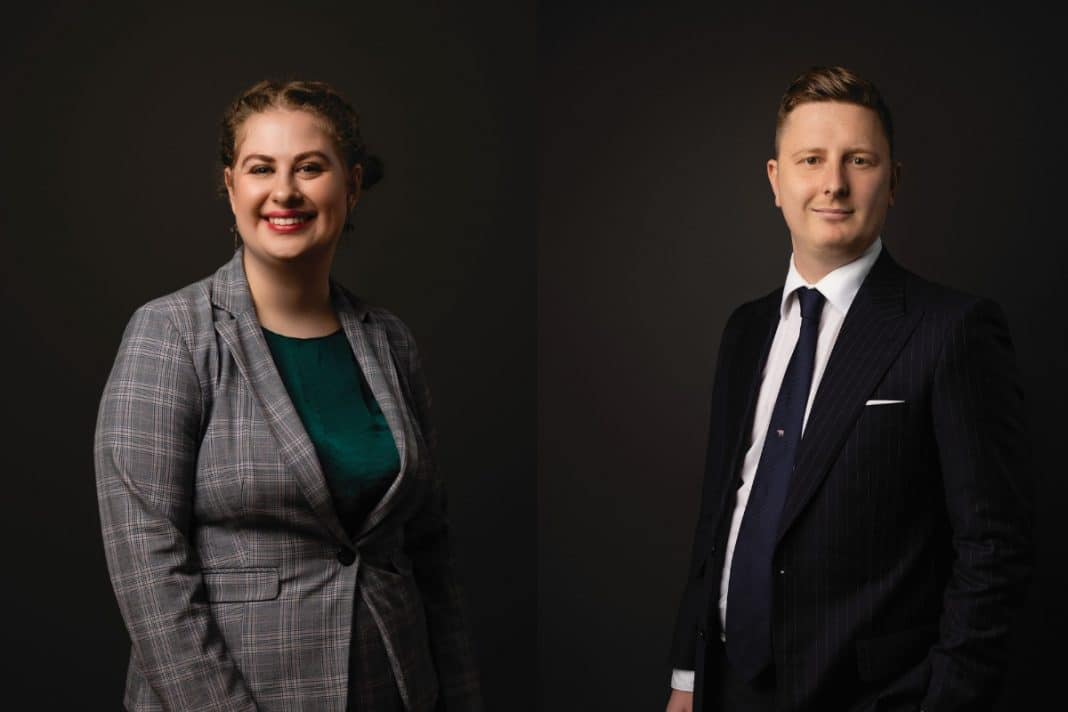From stacking it on uneven pavement, to slipping on a banana peel at the supermarket, a public liability case can come seemingly out of nowhere. Should it ever happen to you, it’s best to know the do’s and don’ts.
Solicitors at Blumers Personal Injury Lawyers, Alex Rigon and Talia Gedik, share the essentials you need to know about public liability.
“Public liability claims are essentially when someone gets injured due to someone else’s negligence,” says Talia.
“It applies to those personal injury cases that don’t neatly fall into worker’s compensation, medical negligence, or motor accidents.” Although, she notes, all three can have public liability aspects.
Despite the name, public liability isn’t necessarily limited to people getting injured in public places.
“We’ve had cases where renters have been injured in their homes, and had a public liability claim against those who built the faulty steps,” explains Talia.
Like most personal injury claims, public liability can be a complex and lengthy process. “Once notified, the respondent has to hand over certain documents that can provide evidence that someone was negligent.
“For example, in a slip and fall at a supermarket, we might get CCTV footage and cleaning records.
“As lawyers, we might not necessarily know whether you have a case or not until we see those records,” says Talia.
The Do’s and Don’ts
Do seek medical attention immediately.
“Talk to your doctor, get the treatment you need. That should happen whether you’ve got a claim or not,” says Alex. “We’ll handle the claims, so you can focus on recovery.”
Do record early evidence.
“If you’re injured in a shopping centre, report it to store management. If you’re injured on a pavement, report it to Access Canberra. That way there’s an early record of your injury,” says Talia.
“In a public liability claim, taking photos is a good thing to do: where it happened, why it happened.
“If you tripped on a paver, then it’s good to get measurements of the difference in the pavement. Because you might trip one day, then find they’ve fixed it the next day.
Don’t wait too long.
“In the ACT, you’ve got nine months from the date of your injury to notify the potential respondent that you may have a claim against them,” advises Alex. “Four months if you have lawyer.
“Then you have three years from the day to commence court proceedings.”
“It’s important not to wait too long, especially because things can change so quickly,” says Talia. “It’s good to have someone get in there early to see how the location was at the time you were injured.”
FAQs
How much is my claim worth?
Alex says, “In most cases it’s far too early to tell when people initially come in, there’s a lot of water to flow under the bridge first.”
“One thing that makes [Public Liability] different to other claims is that no one’s going to pay for your treatment or wages along the way, which can be done in a workers compensation or motor accident claim,” says Talia.
“The treatment comes out of pocket. Then, if you have a successful claim, it gets called back at the end.”
“What you’re entitled to claim is the cost of past and future treatment, economic loss, and domestic assistance, as well as general damages,” says Alex.
Who to sue?
“This is where it can get more tricky than other cases,” Talia says. “In workers compensation, you know who your employer is, and in medical negligence, you know who the medical professional is. But in public liability, you’ve got to work out who’s responsible for what.
“Quite frequently, there’s more than one defendant. If you tripped and fell at the supermarket because the roof was leaking, then you could look to the supermarket itself, but then also who owns that centre and who’s responsible for the roof.”
Is making a claim worth it?
“In most cases, the client would be going through treatment and missing work regardless of whether they have a claim or not.
“Whether or not someone wants to make a claim is a personal decision, as it’s not necessarily a quick process, but it is a way for people to recuperate their losses,” says Talia.
At Blumers, there’s nothing to pay along the way.
“If, once we get those records, we don’t think there’s a case, then the client won’t be charged,” she says.
“If there is a case, then we pay for all disbursements throughout their claim.”
“At the very least, many people just want to know what their rights are, whether they’re in the time limit, and what they should do next,” adds Alex.
“In which case, calling Blumers can give you a better idea of where you’re at.
“It doesn’t hurt to make a call.”
Find out more at blumers.com.au
Blumers
- Level 12, 15 London Circuit, Canberra City
- Mon – Fri 8.30am – 5pm
- blumers.com.au
- [email protected]
- (02) 6208 2600
For more information on sponsored partnerships, click here.


